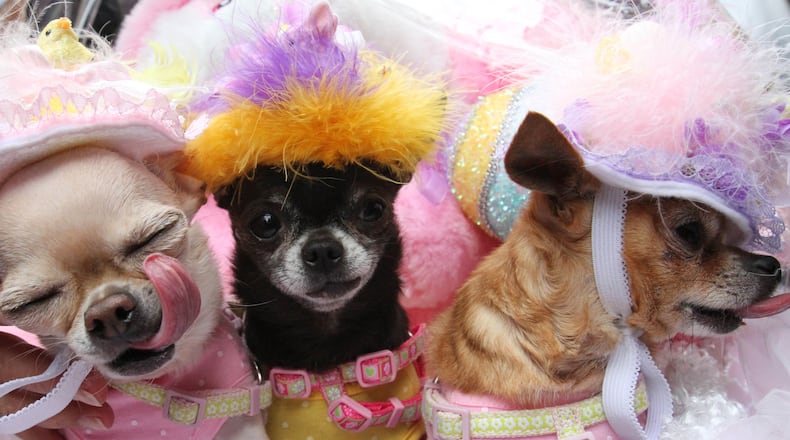Sugar-free candy can contain an artificial sweetener called Xylitol, which is also toxic to dogs. Xylitol can quickly release insulin in a dog’s bloodstream, causing a quick drop in blood sugar that can lead to liver failure or death, the Humane Society reported. If a pet is vomiting, lethargic or having a seizure, contact your vet as your dog may have consumed Xylitol.
Lilies and daylilies are toxic to cats. The Humane Society recommends that cat owners do not keep lilies, as all parts of the flower are incredibly toxic to cats, even the water where the lily is being kept. If your cat shows symptoms such as vomiting, diarrhea, dehydration, extreme thirst, or lethargy, contact your veterinarian immediately. If a cat consumes a lily, you should consider it a medical emergency, the Humane Society said.
Basket fillers such as plastic Easter grass can also be harmful to your cat. If a cat chews on the grass and eats it, the grass could lead to obstructions in your cat’s digestive system. The Easter grass can also cause gastroenteritis or pancreatitis. The plastic Easter grass often needs to be removed surgically. If your cat exhibits symptoms such as vomiting, dehydration, diarrhea, weight loss, weakness, a loss of appetite or pain and bloating then you should contact your veterinarian immediately.
The risk of salmonella from raw eggs is also prominent for cats and dogs. Cooked eggs can be a good part of a pet’s diet, the Humane Society reported. A small amount of raw eggs may not hurt your pet, however if your pet is vomiting or has diarrhea, you may want to contact your veterinarian.
About the Author

